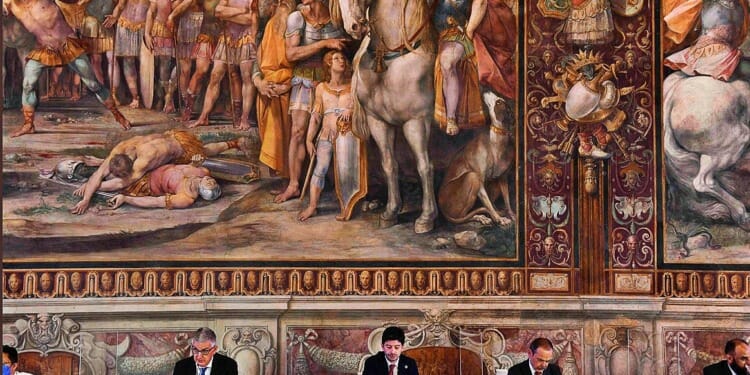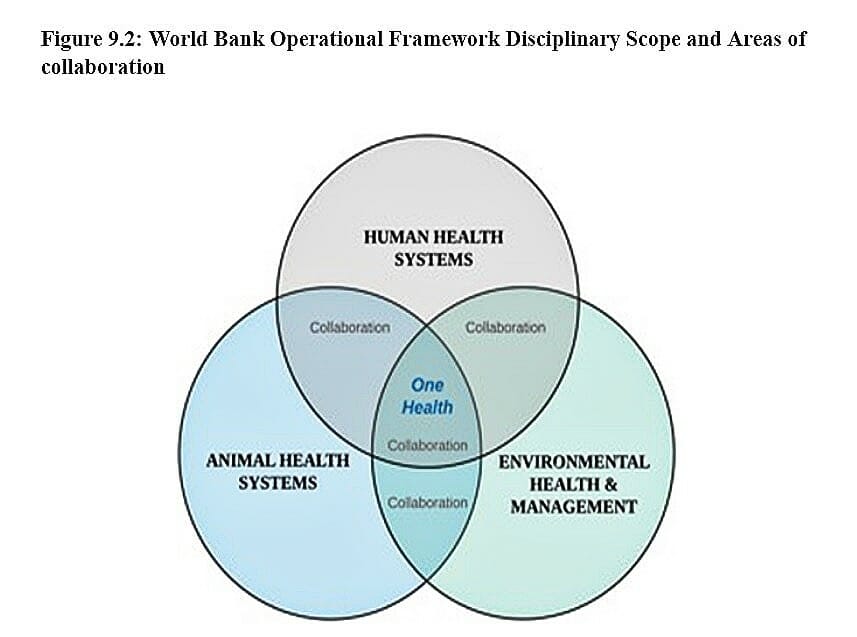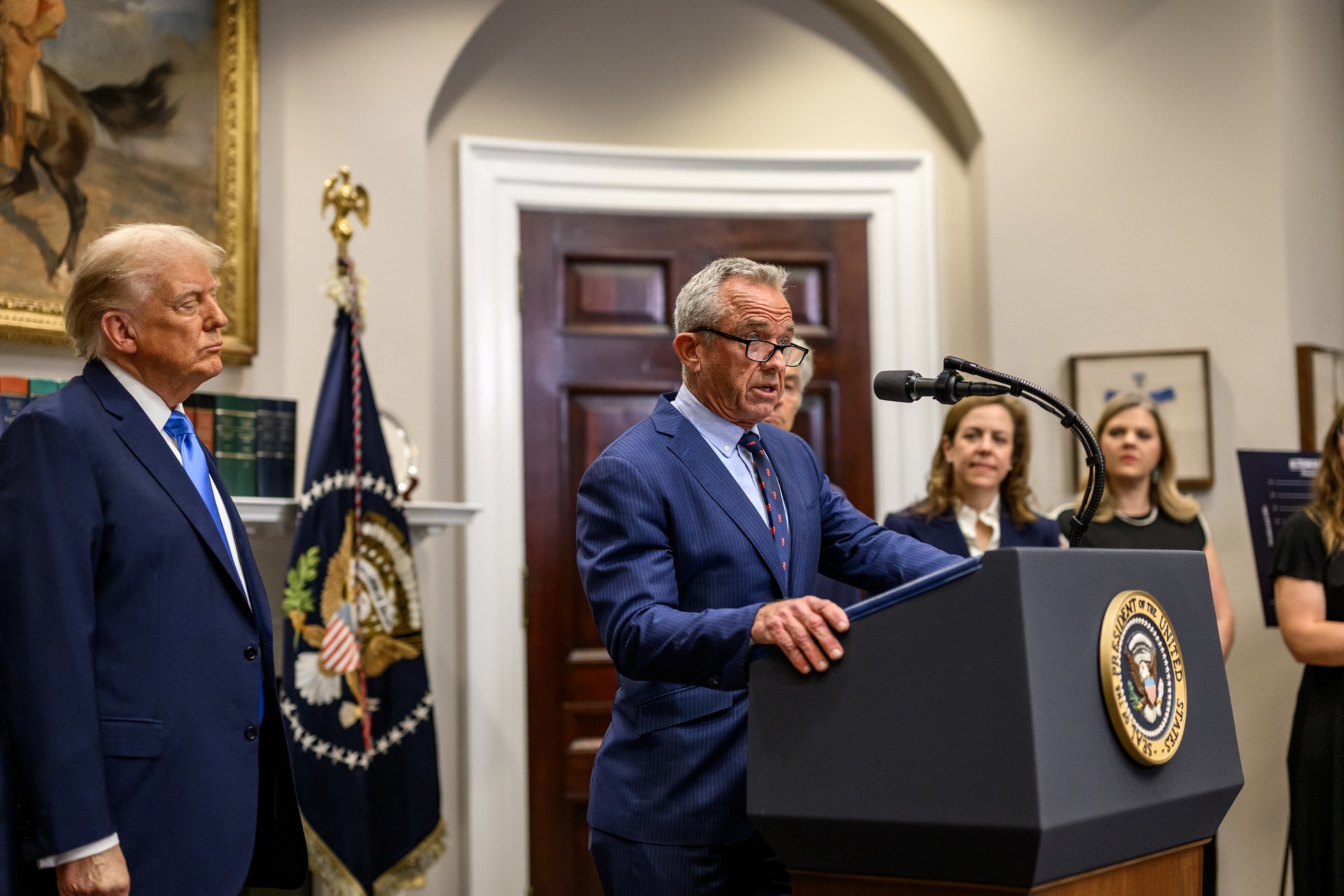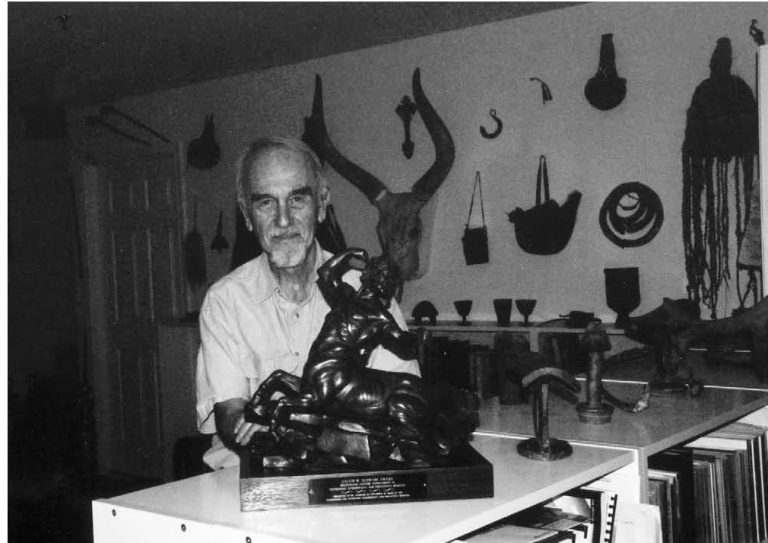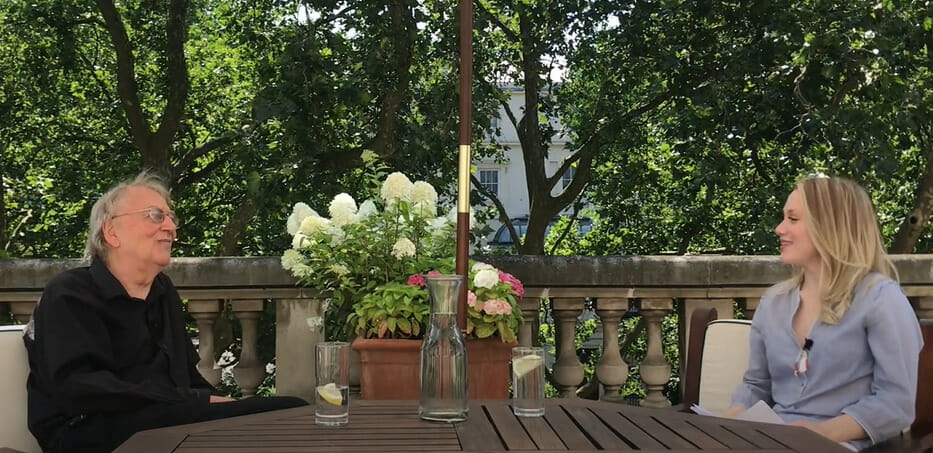Editor’s Note: After “War and Peace?”, “Close to the Edge: Climate Change: Focus on Africa, Asia and the Coastal Poor”, and The Fourth Industrial Revolution and the Intelligence Era: What Next? , we are happy to publish the fourth excerpt from Dr. George Lueddeke’s highly commended and timely book, Survival: One Health, One Planet, One Future (Routledge, pub. 2019/2020). This comes from Chapter 9, “One Health and Wellbeing (OHW) – Inspiring a Global Unity of Purpose”, focusing on the OHW concept that recognizes the symbiotic interdependence of humans, animals, and plants in a shared environment. This holistic construct is deemed increasingly integral to all human activity, relationships with each other and the planet – including at least 20 million species of which we, homo sapiens, are but one, as Covid-19 has made abundantly and distressingly clear – especially the criticality of not transgressing boundary conditions.
OHW crosses all knowledge domains and disciplines at all levels including policies and strategies – thereby helping to ensure the sustainability of the planet. It is somewhat reassuring, therefore, that the G7 and G20 have incorporated the One Health concept in recent communiqués but much less certain that concrete action will follow the rhetoric – in particular, the outcomes of the G20 Summit in Rome on 30/31 October 2021 when the world’s long-term future prospects may hang in the balance.
Here is the excerpt from Survival: One Health, One Planet, One Future.
CHAPTER 9: One Health and Well-Being – Inspiring a “Global Unity of Purpose”
Reimagining the health and well-being of society and the planet
The US National Intelligence Council (NIC) ‘Global Trends: Paradox of Progress’ report makes for uncomfortable reading. It projects, for example, that ‘should current demographic, economic, and governance trends hold, we may be confronted with ‘A more interconnected world’ where ‘differences over ideas and identities’ divide rather than unite ‘as the interplay between technology and culture accelerates and people seek meaning and security in the context of rapid and disorienting economic, social, and technological change.’ :
In the video: Presentation of NIC’s latest Global Trends 2040: A More Contested World. In the recently released Global Trends report (April 2021), the National Intelligence Council detailed five potential scenarios for how the world will look in 20 years. Learn more about the report from the Director of the NIC’s Strategic Futures Group, Maria Langan-Riekhof
In short, for political leaders appeals to identity coupled with technology will be ‘useful for mobilizing supporters and consolidating political control.’
In addition, says the NIC, ‘identity groups will become more influential. Growing access to information and communication tools will enable them to better organize and mobilize—around political issues, religion, values, economic interests, ethnicity, gender, and lifestyle.’ To exacerbate matters, it is anticipated that ‘The increasingly segregated information and media environment will harden identities—both through algorithms that provide customized searches and personally styled social media, as well as through deliberate…..shaping efforts by organizations, governments, and thought leaders.’
Implications of these rising ‘identity politics’ scenarios are worrying. One of the most concerning may be ‘the erosion of traditions of tolerance and diversity’ across parts of the world, including ‘the explicit use of nationalism and threatening characterizations of the West to shore up authoritarian control in China and Russia, and the inflaming of identity conflicts and communal tensions in Africa, the Middle East and South Asia.’ […]
‘Identity politics’ and divisions: Are there constructive alternatives?
The US National Intelligence Council projections appear to be based on several fundamental assumptions, including:
- That ‘ideas and identities’ must divide rather than unite (social);
- That technology and culture must lead to political control rather than power-sharing (political);
- That information and media environments must harden identities rather than act as vehicles for communication and understanding (technological);
- That ecological priorities must continue to be subservient to economic progress (environmental and economic).
A common theme that runs through these premises sees the world as continuing to be ‘a place made especially for humans and a place without limits and ‘our task is to subdue and exploit the earth.’ But, what if, as Steven Pinker optimistically argues in Enlightenment Now, we could overturn the human ‘pervasive negativity bias, driven by a morbid interest in what can go wrong’ and ‘defy the pessimists and improve the world’?
And, what if [discussed further in Chapter 12 on leadership] the world was to confront the actual forces (bullying tactics?) that are increasingly causing global deaths and anxieties and may be responsible for undermining future prospects of people and planet?
What if those responsible were actually held to global account, and we were to replace current assumptions and feelings of resignation or apathy with alternative positive perspectives on and actions for sustaining the world and our role within it?
Pursuing new paths to the future through One Health and Well-Being
Demands for improving population health conditions in the early part of the 20th century were largely responsible for introducing the public health concept and practices, thereby also bringing about the separation of individual patient clinical care and public health, led to a large extent by Johns Hopkins University in the US. Since that time there has been a proliferation of “healths,” such as public health, global health, planetary health, One Health, ‘bewildering’ the public.
To cut through some of the confusion, Dr. Marija Cemma, a microbiologist with the Johns Hopkins Center for Health Security, interviewed ‘global experts’ to distinguish between these terms. Her investigation identifies mainly three camps:
(1) those that deal with ‘improving human health from the population perspective,’ transcending national borders, some including both preventive and individual-level clinical aspects (e.g., public health, global health);
(2) those that are largely concerned with ‘sustainability of our civilisation’ and ‘resource consumption on the planet and human health’ (e.g., planetary health, ecological health); and
(3) those that encompass human, animal, plant, environmental health, and well-being (e.g. One Health, One World-One Health).
[…]
In the video: Sharon L. Deem, DVM, PhD, Dipl ACZM is currently the Director of the Saint Louis Zoo Institute for Conservation Medicine (ICM), a role she has held since the ICM was founded in 2011. Sharon uses a One Health holistic approach for wildlife conservation, public health, and sustainable ecosystems to ensure healthy animals, healthy people, and a healthy planet. In the talk, she explains how a One Health approach will allow us to contend with the triple threats of emerging infectious diseases, climate change, and the loss of biodiversity (wildlife species and wildlands). (October 2020)
The World Bank One Health Operational Framework
In terms of a growing global commitment to One Health, it is important to highlight the World Bank’s recent comprehensive report, Operational Framework for Strengthening Human, Animal, and Environmental Public Health Systems at their Interface. The report, ‘Developed with partners from EcoHealth Alliance’…(which) benefited ‘from input from partner international organizations in the health, agriculture, environment and disaster risk reduction spheres,’ offers ‘ guidance to support countries in optimizing their One Health efforts and outcomes. ‘
One of its many strengths is that ‘It ‘brings together tools and resources from different sectors that can be leveraged for more comprehensive public health system capacity, including planning, implementation, and governance’ and offers ‘ guidance to support countries in optimizing their One Health efforts and outcomes.’ Four ‘take-aways’ from this Framework can be found in Box 9.1.
Box 9.1
Key “Take-Aways” from the ‘World Bank Operational Framework for Strengthening Human, Animal, and Environmental Public Health Systems at their Interface’
-
- Starting points for One Health vary by context, disease, and objectives….
- One Health is integral to the success of multisectoral national action plans for health security…
- One Health approaches should be built into project design from the outset…
- Communication is a key priority for One Health understanding and implementation…
An appeal to world governing bodies
Taken together, One Health is unquestionably an overarching concept that represents a means for achieving global ‘unity around a common purpose’ […]
Inherent in the concept is the need to adopt ethical responsibilities that are rooted in interdependencies and the sanctity of life, which were also at the heart of former UNESCO Director-General Irena Bokova’s appeal, envisioned a few years ago, for ‘a new humanism that reconciles the global and the local, and teaches us anew how to build the world.’ […]
The interplay between institutions and belief systems
The late Nobel laureate, Douglass North, who applied economic theory to history, asked perhaps one of the most important and principled questions of our time: ‘why do some countries become rich while others remain poor?’
Rather than following mainstream neoclassical economics, he emphasised ‘the role of institutions – the rules and conventions of a society, such as laws, property rights, politics, customs and belief systems – in explaining differences in long-term economic growth’ and ‘integrated insights from different traditions in economics and different disciplines.’ Resonating with One Health principles of integration and collaboration, his comparative static analyses ‘drew on insights from psychology, politics and sociology to understand how human cognition, habits, religious beliefs, and ideology shape economic behaviour and, in turn, explain different long-term growth patterns.’
In concluding his Nobel 1993 lecture, ‘Economics through Time,’ he drew together implications of ‘development policy’ on ‘the creation of polities’ – that may have relevance for the implementation of the UN SDG Agenda – highlighting, among others, that ‘Both institutions and belief systems must change for successful reform since it is the mental models of the actors that will shape choices.’
It is with these linkages in mind together and with his reflections on ‘learning’ that the One Health concept and approach – Thinking, Planning, Working – could make a distinctive contribution to the UN Global Goals, especially recalling another Douglass North observation that ‘Societies that get “stuck” embody belief systems and institutions that fail to confront and solve new problems of societal complexity.’
Author commentary:
In conversation with the Impakter editor prior to publishing this excerpt, Dr. George Lueddeke emphasized that the One Health and Wellbeing (OHW) concept should be seen as the unifying glue that holds society together. He contends that the OHW concept needs to underpin the UN’s Sustainable Development Goals (SDGs), along with the preventive policies that they ought to drive now and in coming decades as a matter of priority: climate change, biodiversity loss and infectious diseases.
OHW challenges policy and decision-makers to determine the root causes of global risks from poverty to energy to armed conflicts, and to seek collaborative ways to mitigate these – ideally prevent them entirely. Neglect or disinformation (lies) are not the answer nor are continuing to serve the self-interests of a few. It is a certainty that planet Earth can thrive without us humans but that it will surely perish if the elements that sustain life (oxygen!) – animals, plants, environment – are placed at risk. This, he noted, was an extreme situation, indeed a perfect storm that unfortunately was no longer theoretical but close at hand.
Just consider, he lamented, that, according to the WWF, there has been a 68% decline in the population size of mammals, birds, amphibians and other species (94% in South America & Caribbean -highest in the world !) since 1970. What happens when this figure increases to 90%?
We are already in the 6th extinction phase – in the last one an asteroid wiped out the dinosaurs 65 million years ago. This time we are fast becoming that asteroid.
Transcending the political or sectarian philosophies and values that divide us – created by a species seeking a common good or evil (e.g. fascism!) – is no longer an option, he said, but an imperative.
Referring to economist and Nobel recipient Prof Douglas North’s insight that our mental models or belief systems hold the key to our survival, he noted that at present these are almost irrevocably being compromised.
Democracy is declining steeply with only about 7 percent of all nations in 2021 deemed fully democratic, i.e. with free elections and freedom of speech (see the Democracy Index 2021 online).
 What was most striking were the attempts in the past few years to undermine leading democracies such as the US and the UK. At the same time, autocracies are taking hold globally on the basis that the ‘might’ of a few (power) is more important than the ‘right’ of the majority (equality, peace and prosperity). It is noteworthy that globally most extreme poverty, diseases (Covid-19), restricted life expectancy, lack of opportunity and oppression occur in countries that have authoritarian forms of government leading in most cases to deliberate crises of their own making.
What was most striking were the attempts in the past few years to undermine leading democracies such as the US and the UK. At the same time, autocracies are taking hold globally on the basis that the ‘might’ of a few (power) is more important than the ‘right’ of the majority (equality, peace and prosperity). It is noteworthy that globally most extreme poverty, diseases (Covid-19), restricted life expectancy, lack of opportunity and oppression occur in countries that have authoritarian forms of government leading in most cases to deliberate crises of their own making.
The continuing moral decline of humanity is surely a wake-up call for us all, he concluded, but especially for the younger generation who have so much to lose by a world held in chains and everything to gain by striving toward freeing the human will and spirit.
Some may agree, he reflected, that the fundamental principles and values of the One Health and Wellbeing concept/approach could provide the basis for adopting a new moral compass at a time when the need to counter the possibility of a dystopic future could not be greater – a scenario also painted by Yuval Harari in Homo Deus – the author also of Homo Sapiens.
In many ways, the need to transform society from human-centric to eco-centric thinking (it’s all about us!) and action is the aim of the self-standing international One Health for One Planet Education and Transdisciplinarity initiative (1 HOPE-TDI. Recognising the urgency to re-orient society towards a sustainable future, its vision is for society to embrace the OHW concept and the UN-2030 SDGs by adopting a new societal narrative that pays ‘equal attention to ecosystems, animals and humans’,
Most (c. 95%) annual global expenditures (c. US $ 88 trillion) (p/see below) are now allocated to human causes – not animals, plants or restoring the environment with many interventions harming lives and futures with the Gross Domestic Product (GDP) standards, adopted in 1937, rewarding, as one example, those who cut down trees and encroach on habitats rather conserving nature.
The fundamental assumption is that OHW is the underlying guiding principle and that the SDGs are the strategies to achieve global sustainability: simply put, ensuring the needs of humans are compatible with the needs of our ecosystems.
Covid-19 has reminded us that the biosphere is now in charge of our lives and future destiny – not political, economic or military posturing that has essentially brought us to the state of the planet today where land, sea and air are all at a tipping point.
1 HOPE-TDI is presently building regional networks and cross-disciplinary planning teams with a view to identifying transformative changes needed recommending policies and strategies informed by OHW and the SDGs. (Anyone interested to learn more about this initiative can contact me.)
Finally, he re-affirmed that the OHW concept holds the possibility of providing a global unity around a common purpose. The critical question – a recurring theme in most of his publications – is whether global decision-makers, e.g., UN Security Council (UNSC), who hold all life on the planet in their hands, are able to rise above their own self-interests and place planet sustainability at the top of their agendas.
A significant and crucial part of the challenge (injustice?), Dr. Lueddeke says, is that the current UNSC membership includes the same five permanent members selected in 1946 after WWII – US, Russia, France, UK, China (total population of about 2 billion out of over 7.8 billion people – with most regions not directly represented: Africa, India, SE Asia and others. These areas also have the largest number of poor and marginalised people which, as Covid-19 has demonstrated, need to become central to the global pandemic response especially in light of climate change and biodiversity loss – thereby ensuring that our unique ‘blue’ planet (‘our only home,’ as the late Prof Carl Sagan at Harvard eloquently said decades ago) remains a healthy and safe place not just for future generations but also for us today.
In his concluding comments, Dr. Lueddeke referenced Hilary Clinton, who was former vice-president to Barack Obama, and her new publication (fiction), State of Terror. In an interview, she mentioned that we needed to pay attention to what is actually happening in the world. Real dangers remain in the US and the world, she said. The rise of Hitler in the 1930s was a good example with the business community and establishment figures thinking that they could control him but leading only to predictable tragic and avoidable consequences worldwide.
The G20 Summit in Rome on 30/31 October 2021 could be a historic, uplifting moment for the planet or, alternatively, undermine or even reverse the progress – though already too limited toward a sustainable future that is already being made.
Professor Jared Diamond in his seminal book, Collapse: How Societies Choose to Fail or Survive, was right in concluding the folly of thinking that nations can advance ‘their own self-interests at the expense of others’ and that ‘the elite can remain unaffected by the problems of society around them.’ As he says, collaborative long-term planning and willingness to reconsider core values’ are key to our survival. The time for both measures is now!
Editor’s Note: The opinions expressed here by Impakter.com columnists are their own, not those of Impakter.com. — In the Featured Photo: The second day of the #G20 Health Ministers’ Meeting in Rome started with a session devoted to “Preparedness plans through the one health approach and globally coordinated and collaborative response to health emergencies” Sept. 6, 2021 Source: Twitter


